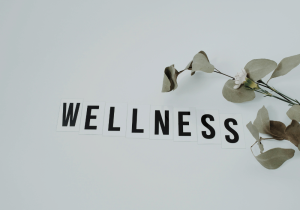Men’s Mental Health Month is a time dedicated to raising awareness about the mental health challenges faced by men, breaking down barriers, and encouraging open conversations around an often overlooked but critical topic. Mental health struggles do not discriminate, yet men are disproportionately less likely to seek help due to societal expectations and stigma. This observance invites everyone to shine a light on these issues, unpack deep-seated misconceptions, and foster a supportive environment where men feel empowered to take control of their mental well-being.
The statistics are sobering. According to the World Health Organization (WHO), approximately 1 in 5 men will experience mental health struggles within their lifetime. Alarmingly, men are three times more likely to die by suicide compared to women. These figures highlight the urgent need for tailored mental health initiatives and interventions targeting men specifically. While awareness is growing, a significant gap remains in understanding and support, largely fueled by myths such as “real men don’t cry” or “men are naturally stoic.” This blog aims to dismantle these misconceptions and provide a roadmap for recognizing, addressing, and supporting men’s mental health.
Societal Pressures and Their Impact
 Societal pressures play a significant role in shaping men’s mental health experiences. Traditional masculinity norms, for instance, dictate that men must embody traits such as strength, resilience, and emotional restraint. While these traits are not inherently harmful, they often discourage men from expressing vulnerability or seeking help when navigating emotional challenges. The message that “men should tough it out” can internalize feelings of shame and inadequacy, preventing men from addressing their mental health altogether.
Societal pressures play a significant role in shaping men’s mental health experiences. Traditional masculinity norms, for instance, dictate that men must embody traits such as strength, resilience, and emotional restraint. While these traits are not inherently harmful, they often discourage men from expressing vulnerability or seeking help when navigating emotional challenges. The message that “men should tough it out” can internalize feelings of shame and inadequacy, preventing men from addressing their mental health altogether.
Work-related stress is another major contributor. For many men, their professional identity is intricately tied to their sense of self-worth. Long hours, intense workloads, and the pressure to provide financially for their families can lead to chronic stress and burnout. This unrelenting drive to excel in the workplace often comes at the expense of physical and mental health. Yet, many dismiss these struggles as part of the job, ignoring the long-term toll it can take.
Adding to this mix is social isolation, a challenge particularly prevalent among men. While women often build emotionally open networks of friends, men are less likely to maintain such connections as they age. The societal expectation that men should “go it alone” further compounds feelings of isolation and loneliness, conditions that can exacerbate mental health issues like depression and anxiety. Addressing these pressures requires a cultural shift that normalizes emotional vulnerability and broader discussions about masculinity and health.
Recognizing Signs and Symptoms
Understanding the signs and symptoms of mental health challenges in men is crucial for early intervention. Emotional distress might manifest as irritability, frustration, or sudden outbursts of anger, which are often misinterpreted as personality traits rather than red flags. Men may struggle to articulate their feelings, choosing instead to suppress them, which can mask the true depth of their struggles. Recognizing these emotional patterns as potential indicators of mental health issues can help initiate vital conversations.
Mental health struggles frequently produce physical symptoms as well. Chronic fatigue, headaches, digestive issues, and unexplained aches or pains are just some of the manifestations of unaddressed psychological distress. These physical signs are often treated medically without consideration of the underlying mental health factors, leading to a cycle of untreated emotional pain that continues to impact the body.
Behavioural changes are another key symptom to watch for. Drastic alterations in sleeping or eating habits, withdrawal from social activities, and a loss of interest in hobbies can all signal underlying mental health struggles. Similarly, an increase in risk-taking behaviours, substance abuse, or difficulty maintaining responsibilities at work and home can indicate that something is wrong. Awareness and understanding of these symptoms can empower men and their loved ones to seek help when needed.
Seeking Help and Overcoming Stigma
Breaking the stigma surrounding therapy and mental health is essential to helping men seek the support they need. Therapy and counseling offer numerous benefits, fostering emotional insight, providing coping tools, and creating a safe, confidential space for men to share their struggles. Highlighting the power of professional help can normalize therapy as a positive and proactive choice rather than a last resort.
Finding the right therapist is an equally important step. Many men benefit from working with a professional who understands their unique experiences and challenges. Whether through individual counseling, group therapy, or online treatment options, men have a variety of therapeutic frameworks to explore. Personalized care ensures that the process is comfortable and effective, addressing specific needs at a manageable pace.
Encouraging open conversations about mental health is crucial for de-stigmatizing the topic. Families, friends, and workplaces play a pivotal role in creating environments where men feel supported and unjudged. Sharing personal stories, advocating for mental health days, and promoting inclusivity in dialogue are all simple yet powerful ways to endorse seeking help and emotional openness.
Promoting Self-Care and Well-Being
 Self-care is a vital aspect of maintaining mental wellness, and building healthy lifestyle habits can significantly improve overall well-being. Regular physical exercise, consuming a balanced diet, and ensuring enough sleep are foundational practices for minimizing stress and enhancing mood. These habits are not just acts of self-care but investments in mental resilience and physical health.
Self-care is a vital aspect of maintaining mental wellness, and building healthy lifestyle habits can significantly improve overall well-being. Regular physical exercise, consuming a balanced diet, and ensuring enough sleep are foundational practices for minimizing stress and enhancing mood. These habits are not just acts of self-care but investments in mental resilience and physical health.
Mindfulness and relaxation techniques, such as meditation or deep-breathing exercises, are also effective in managing anxiety and promoting emotional balance. Practices like journaling or engaging in hobbies can further provide therapeutic outlets for emotions and a sense of achievement. Small, consistent actions can have profound impacts over time, reinforcing the idea that self-care is neither indulgent nor unnecessary.
Building a robust support system is another essential component of self-care. Surrounding oneself with friends, family, or peers who understand and encourage open communication can make a world of difference. Whether it’s joining a gym class, attending social clubs, or participating in mental health forums, fostering connections plays an invaluable role in countering isolation and nurturing a sense of belonging.
Resources and Support Networks
Accessing the right resources can be life-changing for those struggling with mental health challenges. Numerous organizations, such as the Movember Foundation and the American Foundation for Suicide Prevention, are dedicated to men’s mental health. These organizations offer valuable tools, including educational materials, workshops, and community events.
Online support groups specifically tailored to men provide a digital space for open discussions. Websites like HeadsUpGuys and forums like Reddit’s r/Men’sLib offer men the opportunity to share their experiences, seek advice, and connect with others on similar journeys. These platforms often feel like safe, non-judgmental environments where men can speak freely.
Crisis hotlines are crucial lifelines for immediate support. Services such as Talk Suicide Canada (available at 1-833-456-4566) provide 24/7 confidential support for anyone in distress. Knowing where to turn during moments of crisis can save lives and offer reassurance that no one has to face mental health challenges alone.
Men’s Mental Health Month offers an opportunity to address deeply rooted stigmas, societal challenges, and misconceptions that continue to affect men’s mental well-being. Through awareness, education, and action, we can empower men to take charge of their mental health and encourage open, judgment-free discussions. Whether it’s recognizing the signs of emotional distress, seeking professional support, or advocating for self-care, every step toward mental wellness is significant. At Phillips & Associates Psychotherapy, our experienced therapists are committed to fostering mental health awareness and providing tailored care for men navigating these challenges.
Take the first step today. Schedule a consultation with our team and begin building the mental resilience and well-being you deserve. There’s strength in seeking help, and together we can break the cycle and build healthier futures for all.
